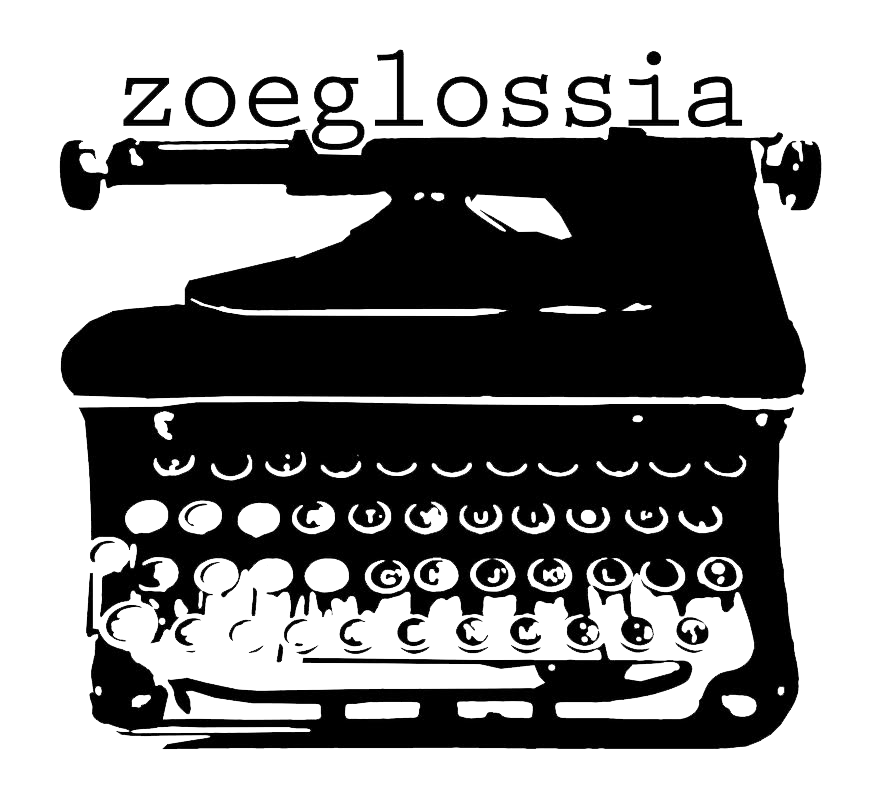March 2022
Zoeglossia Poem of the Week Series: What Tethers Us?: Poems that Sound the Depths of Connection
Curated by Ellen McGrath Smith
This weekend, we installed a new cable modem for our smart TV, and one of the results has been that the closed captioning won't work for the series I have been watching. I tried to get through an episode last night without captions but grew weary. I lost interest, since I was catching only about 25 percent of the dialogue. I'm sure we'll be able to troubleshoot this glitch, but the whole experience reminds me of the years of my life spent blaming my "bad ears" for my lack of access—to what teachers were saying, what peers were saying, what everyone was saying. Finding a community of disabled writers tethered me for the first time to the belief that I could ask for more, that I did not have to simply tune out or power off in frustration when I couldn't hear what I truly wanted to hear.
I use the word "tethered" intentionally here. It's inspired by a poem by Jason Irwin (March 21), which is one of the Poems of the Week for this month. In this poem, Irwin recalls his experience as a frightened child in the hospital for an amputation, a child who has grown "sick and tired / of hospitals, of surgery, of checking [his] blood / pressure and temperature, / the beeping of IV machines." The poem enacts a radical acceptance of what tethers the young speaker to the world in spite of cardiac arrest during the unsuccessful surgery. More than anything, reading the work of disabled writers has taught me to recognize what tethers me—to others, to my time-and-place-bound body and mind, to ableist assumptions and growing efforts to undo them. At the end of his image-rich poem recounting the harrowing memory of temporary death, Irwin writes, "I was not Christ, risen in glory. I was just one sick child, / among many sick children tethered to this world."
The Cartesian fantasy of transcending the body and its tetherings has long been criticized as inimical to individuals, to cultures, to civilizations. No group of people understand this more than writers with disabilities. It was through this community that I learned to truly be with my own tetherings instead of launching myself onto a sublime cloud that denied them. For instance, the brilliant work of poet, professor, and performance artist Petra Kuppers has inspired my own work in writing with more somatic awareness. My Poem of the Week (March 7) for this month, "Somatic Overheated Room, 2020," is inspired by Petra's work, as well as that of CAConrad. I wrote it with a group of undergraduates in an unbearably hot classroom. We decided to tether ourselves to this particular discomfort as we wrote, without trying to evade or transcend it.
Jill Khoury's (March 14) "pure o," which is the second Poem of the Week for March, speaks through rather than over or around obsessive-compulsive intrusive thoughts. A key word in this poem is "disappoint," whose Middle English sense is "deprive of a position." The speaker finds themself deprived of a position from which to point to a self that isn't, to an ableist world, disappointing when framed dualistically (Descartes again!). The interruptions in the poem—whose form is truly an extension of content—insist on a continual positioning and repositioning over the illusion of a "stable I." If the ability to point to a stable subject is the sort of tether a reader expects from a poem, "pure o" disappoints that expectation while tethering itself to the no-less-real experience of intrusive thinking—just as the choppy waves of the sea tether a ship to its journey.
Finally, Emilio Rodriguez's (March 28)"On the Bus Back Home: The Faceless Burqa," our last Poem-of-the-Week for March, immerses readers in a combat veteran's experience of PTSD, which can rise up to tether him to a horrific past even in a peaceful present. The overpowering effect of this tethering must be battled long after the actual battlefield has been left behind, as the distance of time and space collapses when a woman wearing a burqa on a Pittsburgh bus sits across from the speaker. If trauma tethers the speaker to the stuff of nightmares and shame, his commitment to looking squarely at those tetherings, of not denying them even as they physiologically and mentally uproot him during the bus trip, becomes the tether that anchors him, as does Rodriguez's commitment to fellow combat veterans who fight this internal war every day.
March comes in like a breath of fresh air, and I hope the poems of the week for this month we love to lionize, do just that.
